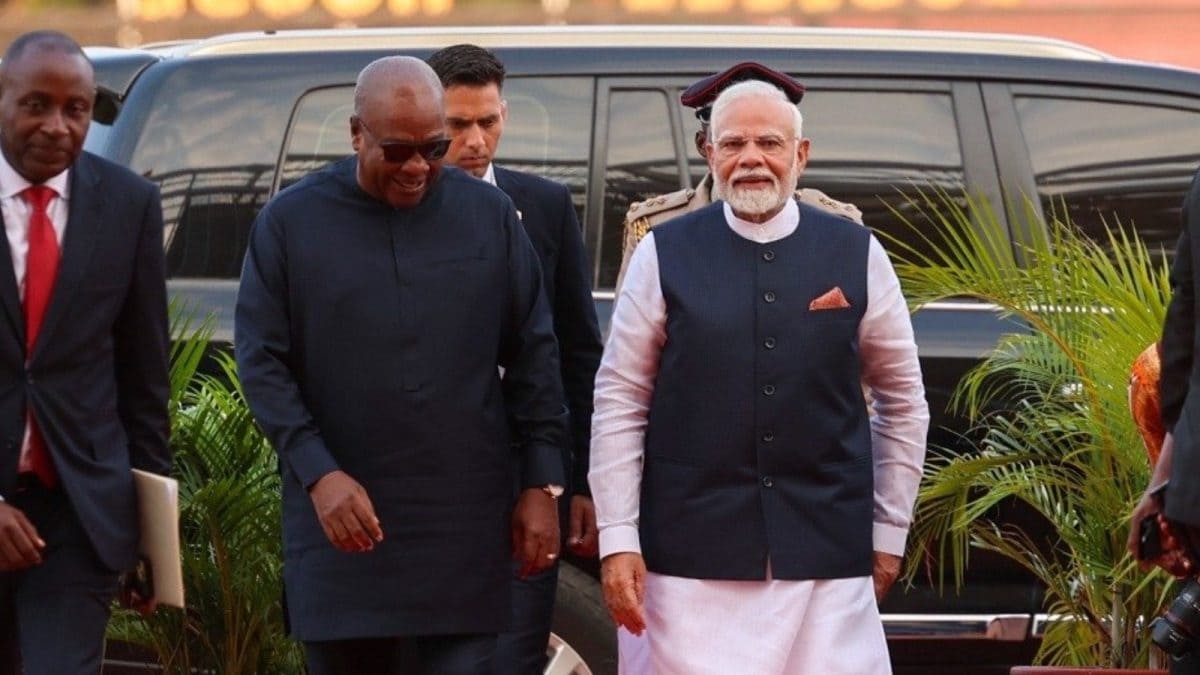Russ Vought’s years-long quest to dismantle the federal workforce and consolidate power for the president is coming to fruition, and he may be given a major boost when he reportedly takes on Elon Musk’s cost-cutting efforts as the billionaire bows out of the federal government.
The director of the office of management and budget has worked alongside Musk’s “department of government efficiency” to slash through the federal government since Trump took office. The Wall Street Journal reported this week that Vought would take on an increased public role in Washington as Musk transitions out and the president’s budget process advances. The outlet reported that Vought could use the budget process to make some of Doge’s cuts permanent.
Vought embraces Christian nationalism and is more ideologically driven than Musk. He knows more intimately how to use the levers of government to enact his goals. He was a key figure in Project 2025, the conservative manifesto to guide a second Trump term, and authored a chapter on how to lead the agency he’s again tasked with leading.
His distaste for civil servants, the so-called “deep state” that prevented Trump from carrying out his full agenda the first time, is profound. “We want the bureaucrats to be traumatically affected,” Vought said in a video obtained by ProPublica and the research group Documented in October. “When they wake up in the morning, we want them to not want to go to work, because they are increasingly viewed as the villains. We want their funding to be shut down … We want to put them in trauma.”
Musk and Vought have forged a “quiet alliance”, Politico reported in March. Musk served as the public face of cutting the government, the wrecking ball whose team forced its way into federal agencies to access data to underpin cuts to spending. Vought and his team had the knowledge and precision to then parse that data and figure out whether and how to cut, Politico reported. A former official told the outlet that Vought was a “‘by any means necessary’ guy”, grasping the political moment to serve his vision.
Max Stier, who leads the Partnership for Public Service, a non-profit that seeks to advance the federal workforce, told Politico that the difference between the two men is that “Vought wants to reshape our government into a bludgeon for his ideological vision, while Musk seems much more focused on destruction without understanding or care for the many harmful consequences of his actions”.
Vought told the conservative commentator Tucker Carlson he thought Doge was “bringing an exhilarating rush” and creativity to slashing the government, praising the agency’s “outside- the-box thinking [and] comfortability with risk and leverage”.
Vought is expected to work on the new version of Schedule F, a proposal he advanced in Trump’s first term that was revived, which would eliminate job protections for tens of thousands of career civil servants, making it easier to fire them and replace them with loyalists.
Vought wants to flex executive power and exert the president’s role over the federal budget by impounding funds, or not spending money Congress has already appropriated in its role as budget-maker. He’s spoiling for a court battle on the topic, hoping the US supreme court will overturn the Impoundment Control Act, which limits impoundment.
Before he was confirmed in his role, the office of management and budget sent a memo that created confusion and chaos nationwide when it called for a mass freeze on federal grants and funds in the early days of the Trump administration. That memo had “Russ’s name written all fucking over it”, a Republican aide told Politico, though Vought was not formally tied to it.
Vought served in Trump’s first term as deputy director of the agency, then director, ending when Trump left office. Before his White House tenure, Vought was a fixture in rightwing politics in Washington, holding a variety of roles in Republican offices.
After his time in the White House, Vought started the Center for Renewing America, an organization with a mission to “renew a consensus of America as a nation under God” that has railed against critical race theory and progressive ideology. The center has recommended invoking the Insurrection Act and ending the Impoundment Control Act. The center, and Vought, contributed to Project 2025, which was helmed by the conservative thinktank the Heritage Foundation.
In Project 2025’s chapter on the office of the president, Vought lays out how the federal government is not beholden to the president’s plan and is instead “carrying out its own policy plans and preferences – or, worse yet, the policy plans and preferences of a radical, supposedly ‘woke’ faction of the country”. The bureaucracy believes it has independent authority and protection, making it too powerful to be reined in, Vought said.
“The great challenge confronting a conservative President is the existential need for aggressive use of the vast powers of the executive branch to return power – including power currently held by the executive branch – to the American people,” he wrote.
As for his own role, the budget director “must view his job as the best, most comprehensive approximation of the president’s mind as it pertains to the policy agenda”. Vought, and the project writ large, call for mass firings of federal employees to better stock the workforce with Trump loyalists who will not stand in the way of his agenda.
“The overall situation is constitutionally dire, unsustainably expensive, and in urgent need of repair,” he wrote of the federal bureaucracy. “Nothing less than the survival of self-governance in America is at stake.”
Since Trump has taken office, a host of Project 2025-aligned proposals have been introduced or put in place, cementing the role the ideological document plays in the advancement of the rightwing agenda. The first wave of Project 2025-aligned actions has been conducted largely by executive orders. A second wave of recommendations requires the rule-making process at agencies, and others would require congressional action.
In this more precise stage, Vought would carry out his plans to create long-term changes to how the federal government functions and operates. He has written the budget office plays a “vital role in reining in the regulatory state”.

 1 month ago
1 month ago

















